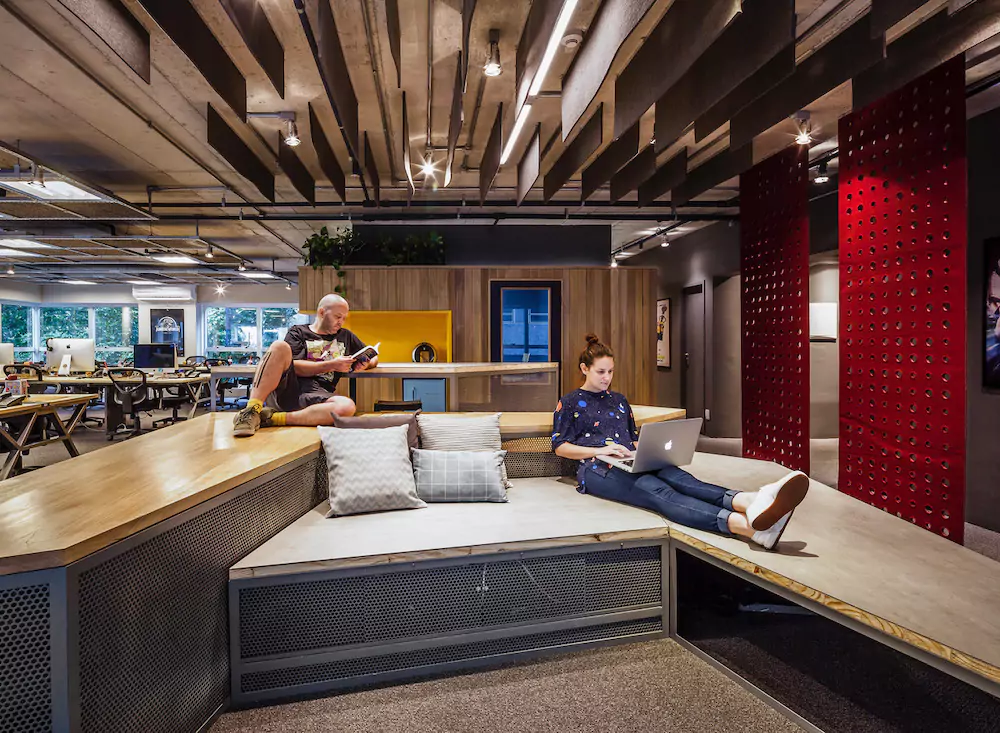The future of work is sentient workplaces, and additional stories

For PropertyGuru’s news roundup, introducing sentient architecture – buildings that can sense, think, act, and communicate using embedded technology. In more news, telematics will ensure greener transport for Southeast Asia in the future. Lastly, artificial intelligence (AI) could be a catalyst to “supercharge” the Thai economy, according to the group chairman of Kasikorn Business-Technology Group (KBTG).
The future of work: Sentient workplaces for employee well-being
Imagine stepping into an environment that fully understands you, knows your habits, and actively works to support your well-being as an occupant. Air quality might be monitored and managed, and occupant circadian rhythms might be tracked to suggest ideal states of productivity. Workplace designers have been considering occupant well-being and health in their designs for offices of the future. Hypothesising what time ahead may contain, there is a strong case to be made for sentient architecture and interior design being disruptive forces in how we interact with our work environments.
As noted in ArchDaily, sentient architecture is a concept that describes buildings that can sense, think, act, and communicate using embedded technology. Buildings and spaces may adapt in real-time to occupants’ needs and convey information instantaneously. It refers to an intelligent and responsive environment that leverages technology to create a feedback loop between buildings and their occupants. The architectural system would rely on data from various sensors, wearables, or scanners that make predictive adjustments to optimize comfort, productivity and well-being in the space.
Telematics to shape greener transport futures in Southeast Asia
Transportation in Southeast Asia (SEA) is a significant consumer of liquid fossil fuels and a major contributor to greenhouse gas (GHG) emissions. Despite varying economic profiles, most SEA countries share a common reliance on fossil fuels and high carbon intensity. Coal, gas, and oil make up 80 percent of the region’s primary energy consumption. The transportation sector alone accounts for almost 40 percent of GHG emissions and 23 percent of carbon emissions. Rapid economic growth in the region has led to a nearly 5 percent annual increase in GHG emissions over the last two decades.
However, businesses and governments are looking to drive fuel efficiency and reduce emissions across their fleets.
A report in DataCenterNews Asia cites that sustainability is good news for fleet managers. An efficient fleet isn’t just good for the environment, it’s good for business too. And telematics makes the change easier than ever.
Kasikorn Business-Technology Group chairman believes AI could ‘supercharge’ Thailand’s economy
As the working age population shrinks, artificial intelligence (AI) could be a catalyst to “supercharge” the Thai economy, says Ruangroj Poonpol, group chairman of Kasikorn Business-Technology Group (KBTG), an arm of Kasikornbank.
By fostering a skilled workforce and igniting innovation, AI can help increase the country’s productivity by 15 percent annually, propelling Thailand out of economic stagnation, Mr Ruangroj told the Bangkok Post. “Building an AI-ready workforce is critical for Thailand’s development. It’s an urgent task to seize the opportunities presented by AI,” he said.
KBTG is collaborating with education technology company DeepLearning.AI, the AI Association of Thailand (AIAT), and the National Science and Technology Development Agency to support AIAT’s Super AI Engineer Program, which is developing an AI curriculum to produce 120 AI engineers per year.
The collaboration also plans to train 6,000 Thais per year through the transfer of AI knowledge, to reach 30,000 people in five years, said Mr Ruangroj.
The Property Report editors wrote this article. For more information, email: [email protected].
Recommended
Why Japan’s new interest rates might spark a transformation in Niseko’s property market
A new era for Niseko’s wintry property market dawns with the sunset of Japan’s negative rates regime
ARES White Paper Volume 3: The era of adaptive reinvention
Pioneering sustainable and innovative practices in urban development
ARES White Paper Volume 2: Unravelling the power of data revolution in real estate
Insights on proptech, smart cities, and sustainable development
ARES Digital White Paper Volume 1: The fundamentals of responsible building
Green and climate heroes join forces to discuss how Asia Pacific can weather the current environmental crises and the looming effects of climate change






